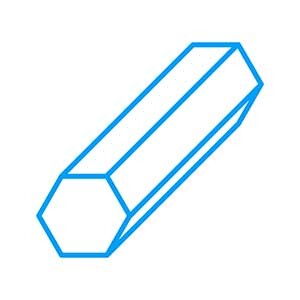Non-Ferrous Metals Grades
33 Product(s)



















Metal Materials – High-Quality Alloys for a Wide Range of Applications
The Materials category within Non-Ferrous Metals offers a broad selection of alloys and materials that feature outstanding mechanical, chemical, and visual properties. Whether brass, copper, or bronze – these materials are essential for manufacturing across numerous industries including mechanical engineering, electrical engineering, construction, the automotive sector, and sanitary technology.
What Are Non-Ferrous Metal Materials?
Metal materials are metallic substances characterized by specific properties, compositions, and processing capabilities. In the category of non-ferrous metals, you will find:
- Brass: A copper-zinc alloy with high strength, corrosion resistance, and excellent machinability.
- Bronze: Copper alloys with tin, zinc, or other elements known for their wear resistance and corrosion protection.
- Copper: A pure metal offering excellent conductivity and workability – ideal for electrical and thermal applications.
Each material in this category has been developed to meet specific requirements in industrial and technical applications.
Key Properties of Non-Ferrous Metal Materials
- High Corrosion Resistance
Non-ferrous metals such as copper and bronze are highly resistant to moisture, chemicals, and environmental influences. - Excellent Workability
Thanks to their specific compositions, these materials are easily processed by machining, forging, or stamping. - Versatile Applications
Metal materials meet a wide range of requirements – from electrical components to mechanical parts and decorative applications. - Attractive Appearance
Brass and bronze are appreciated for their gold or copper tones, making them popular in architecture and design.
Application Areas
Mechanical Engineering
Gears, valves, bushings, and precision parts benefit from the combination of strength and workability these materials provide.
Electrical Engineering
Copper and brass are indispensable materials for busbars, contacts, and wiring due to their conductivity and corrosion resistance.
Sanitary Technology
Fittings, faucets, and potable water systems rely on the hygienic and corrosion-resistant properties of these materials.
Automotive Industry
Non-ferrous metals are used in injection nozzles, transmission components, and electrical connectors.
Why Choose Metal Materials from thyssenkrupp Schulte?
The metal materials available from thyssenkrupp Schulte meet the highest quality standards and offer solutions for nearly every industrial requirement. Benefit from:
- Wide Product Range: Available in various forms such as bars, plates, tubes, and profiles.
- Custom Cuts: Tailored solutions according to your specifications.
- Expert Consultation: Our specialists help you find the right material for your application.
Conclusion
The Metal Materials category offers a comprehensive selection of high-quality materials for a wide variety of applications. Whether you need robust components for mechanical engineering, conductive elements for electrical systems, or decorative features for construction – the non-ferrous metals and their alloys in this category deliver quality, durability, and versatility.
Explore our range to learn more about our available metal materials – or contact us directly for personalized advice!